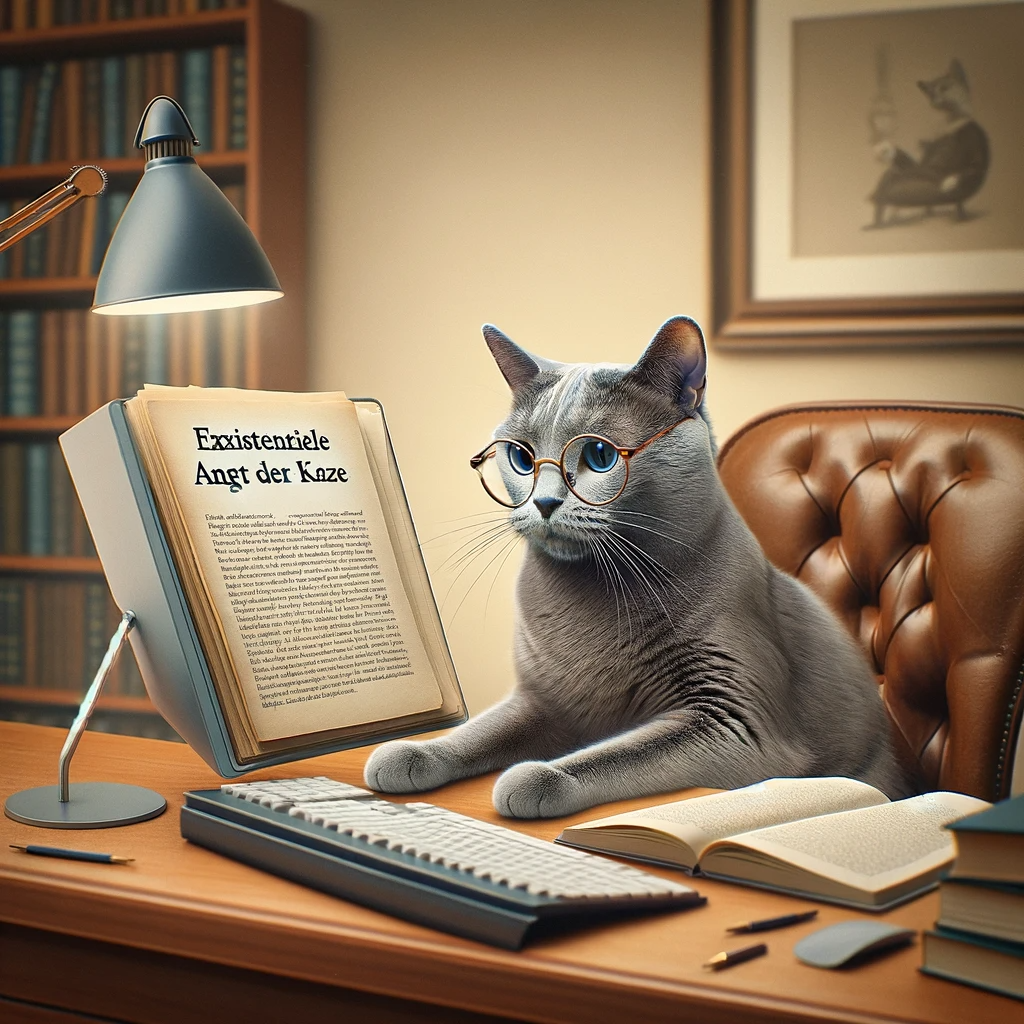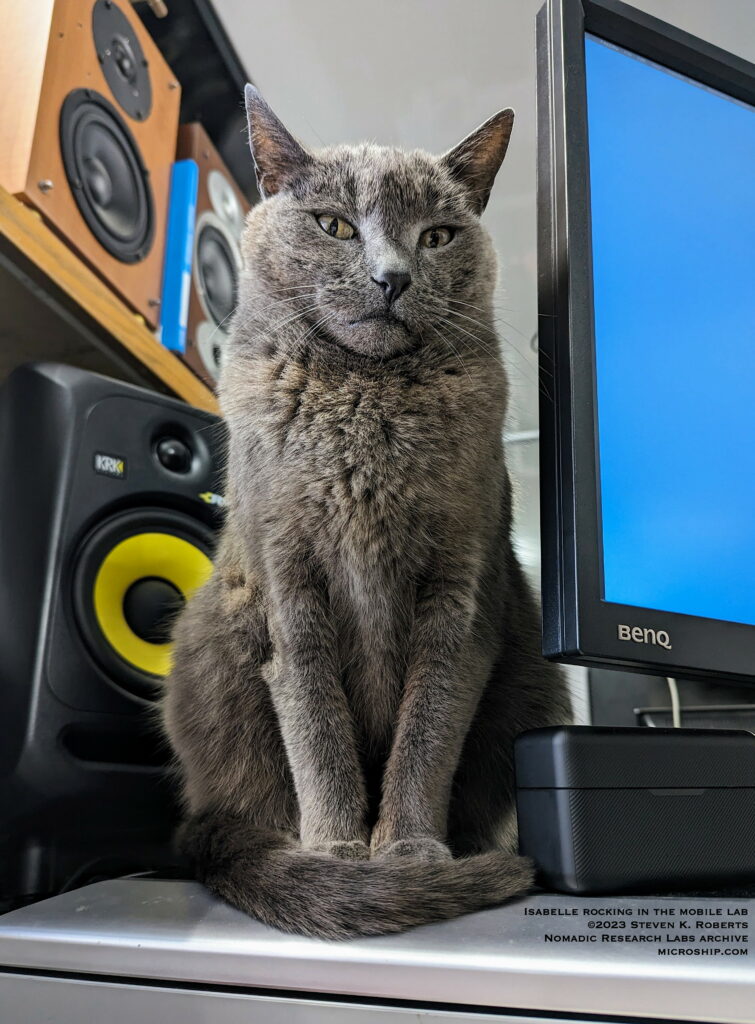
Feline Existential Angst
Inspired by being roused from a nap to be hauled off in the carrier to spend a day with me at the lab, Isabelle threw herself wholeheartedly into completing volume 2 of her critically acclaimed treatise on feline existential angst. For continuity with Kant, Hegel, and other voices, she is writing Existenzielle Angst der Katze in German. The advance manuscript was sent to reviewers just before final edit, with early returns suggesting that Izzy’s magnum opus will redefine our understanding of the cat’s view of Self and thus, hopefully, help us adapt our own behavior to accommodate.
She has begun writing notes for Book 3 of the trilogy, which will contain the verb.
Izzy was annoyed at me for posting this without even a nod to her primary conclusions, insisting that I add commentary. OK, fine:
From a feline perspective, Kant’s emphasis on individual autonomy resonates deeply… most cats see themselves as autonomous creatures who follow their own desires and instincts. Her worldview diverges from the categorical imperative, however, which would seem to dictate that cats should always chase the laser regardless of circumstances, just because it’s “universally fun.” On the contrary, she insists that fun has nothing to do with it, and that obsessively chasing the red dot is merely a side effect of inherent feline neurobiology (the superior colliculus, which directs immediate attention to any small object moving in the visual field). When she pointedly turns her nose up at a randomly introduced laser stimulus, she suppresses the twitches and slowly turns to gaze at me, making sure I understand that she is not only well aware of my attempt to subvert her intrinsic behavior, but also that she has the capacity to deliberately reject it unless she is in the mood.
In her book, she discusses such voluntary refusal to play in the context of synthetic a priori knowledge, with a clarity of expression that is resonating with feline academics worldwide.
That cat, I tellya. Who needs opposable thumbs?




You must be logged in to post a comment.